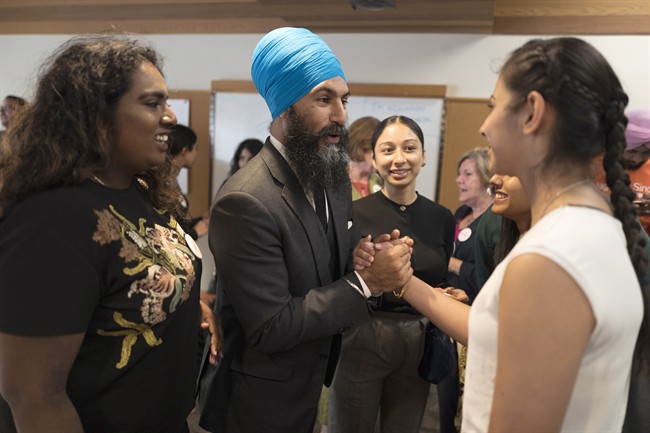After a decisive win over his opponents – he beat runner-up Charlie Angus by 30 points – Jagmeet Singh can now lead the NDP into the 2019 election trying to convince voters that his party is best placed to govern the country. I have no doubt that Singh’s leadership will inspire many who have felt left out of the political process to be part of the movement Singh and the NDP will be starting.

This week, however, demonstrated how Singh and his team will need to brush up on basic communications strategy. In an interview with CBC’s Power and Politics, Singh was asked an odd, and arguably racially loaded, question by guest host Terry Milewski.
First a little background on both Milewski and Singh. In 2007, Milewski produced an investigation into the ties of alleged Sikh extremism and Canadian politics, called “Samosa Politics.” The investigation is well known within the South Asian community, particularly the Sikh community. One of the chief complaints of Samosa Politics (aside from it not being named Pakora Politics) were allegations levelled at the World Sikh Organization, which advocates for the peaceful establishment of an independent Sikh state in India, for harbouring terrorist sympathizers.
Singh, for his part, has been an unflinching advocate for minority rights in Canada and abroad, which includes Sikhs in India. In fact, Singh’s activism on human rights in India seemed to have garnered the attention of the Indian government. In 2013, Singh was denied a visa to enter the country of his ancestors. Although no reason was provided as to why his visa application was denied, it is widely assumed that his criticism of the Indian government’s treatment of religious minorities is what led to the denial.

Get daily National news
Singh has also stated in the past that he supports the right to self-determination, with many taking this to mean this applies to the establishment of an independent Sikh state, or Khalistan.
Of course, it’s nothing short of ridiculous to suggest that one endorses terrorism or violence if they also support an independent Sikh state. Anyone with even a rudimentary understanding of the history of India could see why Sikhs would want an independent state, especially during times when India is ruled by a Hindu nationalist government.
Suggesting that all supporters of Khalistan endorse violence would be akin to suggesting that all Quebec sovereigntists also supported the terrorists belonging to the FLQ. The thing is though, in all my years of celebrating Saint Jean Baptiste at Lac Boivin in Granby, Que., I never came across a single poster celebrating FLQ terrorists. The same cannot be said for Vaisakhi parades or similar events, where posters lauding the actions of the Air India bombers can be found from time to time.
Towards the end of the interview, Milewski asks Singh whether he condemns the celebration of the Air India bombing architect, Talwinder Singh Parmar. Although Parmar was never formally indicted and was killed by Indian security forces in 1992, he is very much considered to have been the mastermind behind the bombing that killed all 381 people aboard.
It’s clear that had Charlie Angus or any of the other contenders won, Milewski would not have asked for the public condemnation of a known terrorist. But given Singh’s activism, his denial of an Indian visa, and the past work of Milewski, Singh should have at least been prepared for the question. Even a mediocre press secretary would have been able to provide Singh with talking points that would have not only pointed out the oddity of the question but would have put the issue to rest.
Unfortunately, that’s not what happened.
Singh categorically denounced violence, referring to the bombing as a “heinous massacre,” and emphasized the longstanding relationship between Hindus and Sikhs. He did not, however, denounce the very few who celebrate Parmar as a shahid, or martyr.
During the trial, the Crown, the defence, and the judge all agreed that Parmar was the mastermind, as did the Commission of Inquiry.
I don’t think any reasonable person believes that Singh is sympathetic to those who advocate violence, and I certainly don’t think so, but voters aren’t always reasonable. But he needs to be able to better answer these sorts of questions. He will inevitably get more of these questions in the future.
It is indeed unfair that Singh will be subject to a kind of scrutiny not faced by other politicians, but being first is almost never fair.
Author’s note: Supriya is a regular contributor to Power & Politics and had family friends aboard Air India Flight 182
Supriya Dwivedi is host of The Morning Show on Toronto’s Talk Radio AM640 and a columnist for Global News.














Comments